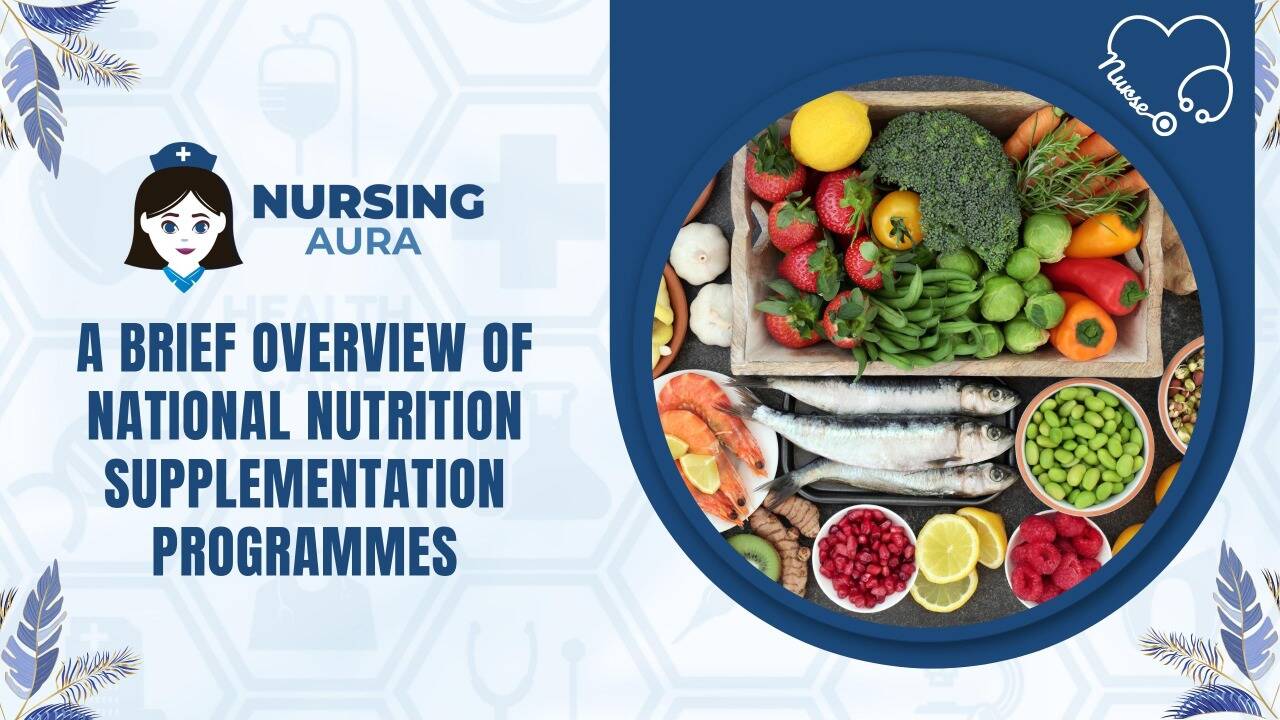Through several Ministers, the Indian government has initiated a number of extensive supplementary feeding programmes aimed at eradicating specific deficiency disorders. The Indian government has established numerous national nutrition programmes to combat vitamin deficiency disorders among individuals who cannot afford enough food and nutrition. Let’s talk about them here.
Vitamin A prophylaxis program:
The National Program for the Prevention of Blindness includes the administration of a single enormous dosage of an oily vitamin A formulation orally to all pre-school children in the community at regular intervals by peripheral health workers.
Preventive measures against iron deficiency:
During the fourth long-term plan, the Government of India established a public campaign for the prevention of nutritional anemia in recognition of its importance to public health. The campaign includes distributing iron and folic acid tablets to pregnant women and infants.
Program for Special Nutrition:
This was one of the unique national programmes and an initiative towards nutrition which was initiated in 1970 for the benefit of children under the age of six, pregnant and nursing mothers, and underdeveloped urban, tribal, and rural areas. This program’s primary objective is to provide users with supplemental nutrition for 300 days each year, although there have been isolated efforts in specific states to interact with other supplemental nutrition administrations.
ICDS programme:
In 1975, the Coordinated Child Development Services (ICDS) programme was initiated in accordance with the National Policy for Children. Anganwadi employees are those who provide the services at the village level. Each Anganwadi unit serves around one thousand people.
Presently, it is widely acknowledged that appropriate and persistent preparation of ICDS functionaries at all levels and useful monitoring are essential to the success of a programme like ICDS that aims to provide a suite of services.
Balwadi Nutrition Program:
This initiative was established in 1970 to assist rural children aged three to six. It falls under the Department of Social Welfare’s jurisdiction. Balwadis also provide youngsters with pre-essential education. As an ICDS Anganwadi worker, the in-charge of the Balwadi Center is a privileged worker who receives a monthly stipend of Rs. 200 for those with training and Rs. A privileged assistant worker assists her. Balwadis provide additional nourishment and care for the social and spiritual growth of the children who attend.
The five organizations are currently in charge of 5,641 Balwadi focuses.
The mid-day meal programme includes:
The midday meal programme (MDMP) is also known as the school breakfast programme. The nationwide implementation of this programme dates back to 1961. The primary objective of the programme is to attract and retain a larger number of children in school, to improve children’s academic performance.
Midday meal plan:
The lunch programme is also known as the National Program of Nutritional Support for Primary Education. It was introduced as a centrally backed strategy on August 15, 1995, and was revised in 2004.
Here are some suggestions for preparing a nutritious and inexpensive midday meal:
- Rice that has been parboiled, rice that has been cooked, single-course meals, combinations of grains, pulses, sprouts, and green vegetables, etc. Salt that has been iodized should only be used to prepare midday meals.
Various Ministers administer anti-malnutrition initiatives focused at combating various deficiency disorders.
Assistance from UNICEF for Women and Children
India has been affiliated with UNICEF since 1949 and is one of the most prominent nations when all factors are considered. The activities are governed by the Master Plan of Action, the most recent version of which was ratified by India and UNICEF on 30 May 1991 and spans through 1995. On a long-term basis, UNICEF will likely allocate approximately $175 million from its total assets to India. Health, education, nourishment, water and sanitation, rural development, urban basic administrations, and so on are only some of the sectors in which UNICEF offers assistance. Clearly, the primary focus of each of its projects is on children and women, with the ultimate objective of improving children’s health, resilience, and development.

